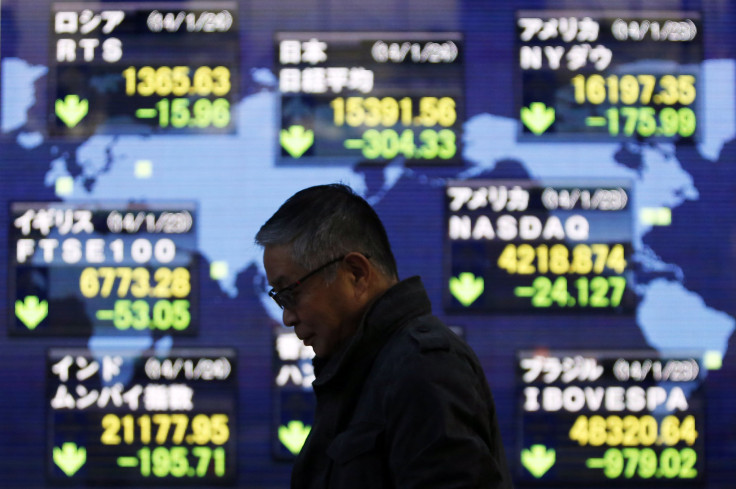Asian Markets See Sell-Off Tuesday Following Treasury Secretary Jack Lew's Comments About Debt Ceiling, Disappointing Manufacturing PMI Data From US

Asian markets reacted to U.S. Treasury Secretary Jack Lew's warning about the impending debt ceiling and disappointing factory data from the U.S., with a sell-off on Tuesday.
Japan’s Nikkei crashed to end the day down 4.18 percent, hitting its lowest level in nearly four months while Australia’s index S&P/ASX 200 fell 1.75 percent while South Korea’s Kospi dropped 1.72 percent. Hong Kong’s Hang Seng opened after the lunar New Year holiday with a fall of 2.56 percent. Meanwhile in India, the benchmark BSE Sensex dropped more than 200 points, or 1.04 percent.
“It is imperative that Congress move right away to increase our borrowing authority. It would be a mistake to wait until the 11th hour to get this done,” Lew said during a speech at the Bipartisan Policy Center in Washington on Monday, adding that the Treasury’s borrowing capacity would expire “in a matter of just days."
The panic in Asian markets was further compounded by disappointing manufacturing data from the U.S., which was also released on Monday. The purchasing managers’ index, or PMI, reading for January came in at a significantly lower-than-expected 51.3 compared to a projected reading of 56.
“We have been bombarded with negative headlines and data points and it just adds to the gloom,” Paul Mackel, head of Asian currency research at HSBC in Hong Kong told MarketWatch. “There is no obvious light at the end of the tunnel.”
On Monday, stock indexes in the U.S. had fallen steeply with the Dow Jones Industrial Average plunging more than 326 points while gold saw sharp gains amidst slumping stocks and Nasdaq’s Commodity Gold Index ended the day up 1.14 percent.
Disappointing data on the factory sector in the U.S. along with Lew’s comments on the urgency to extend the Treasury’s borrowing authority, has turned the focus back on to the U.S. economy and the policy deadlock in Washington, which resulted in a shutdown of the federal government last year.
The U.S jobs data for January, due on Friday, will now be watched even more keenly for a handle on the health of the U.S. economy and the Federal Reserve’s next move. The debt-ceiling crisis, which was triggered last October, was avoided after Congress passed a resolution, postponing the debt limit until February.
“We know what the obstacles are that we face, but we believe that defaulting on our debt is the wrong thing,” House Speaker John Boehner said on Thursday. “We don’t want to do that.”
© Copyright IBTimes 2024. All rights reserved.






















